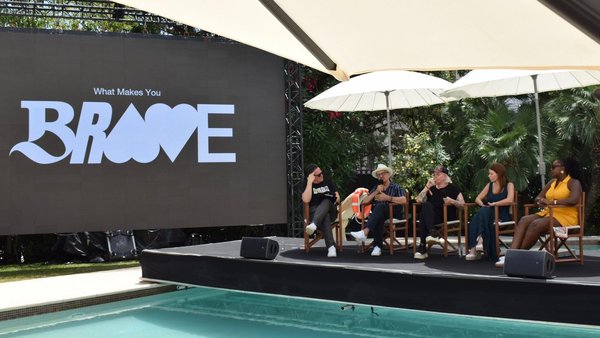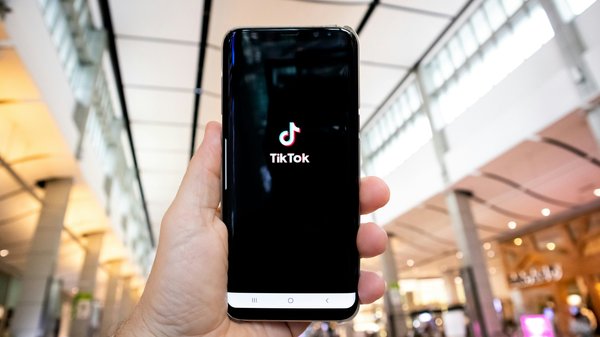Promoted content
Stepping into the Metaverse /
Experts of different stripes assembled at R/GA’s metaverse online panel last week to offer brands a primer on navigating the nascent virtual universe

It’s impossible for marketers to ignore the metaverse and the creative opportunities it presents, but brands should beware that communities come first in the virtual world, warned a panel of experts at an R/GA event last week.
On 27 January, R/GA London brought together voices from gaming, entertainment and marketing for its From Scrolling to Strolling: Creating Metaverse Experiences’ panel discussion.
Nick Pringle, senior vice president and executive creative director at R/GA London, began by explaining the metaverse as ‘a parallel reality created by stitching together all the virtual worlds to form a universe.’
These virtual spaces are societies in themselves, added Pringle, and in order to be successful, it’s crucial that brands ‘identify and collaborate with communities to create experiences that are interactive, immersive and social.’
Chloe Markowicz, editor at Contagious, moderated the discussion between Luke Franks, former TV presenter and current host of podcast series Welcome to the Metaverse; Rachel Stones, business development manager at Epic Games Innovation Lab in London; and Victoria Wells, web3 and metaverse strategy director at R/GA New York; as well as Pringle.
Markowicz kicked off by asking the panellists about the opportunities for brands in the metaverse.
Epic Games’ Stones talked about how the metaverse is characterised by playfulness and interactivity, which can produce staggering engagement statistics. But, she adds, ‘the metaverse puts people before brands and anyone entering it has to position themselves carefully – it’s about value creation.’
Pringle agreed that any brand looking to enter the virtual world needs to tread with caution. ‘If you’re not building for a specific community,’ he said, ‘you’re in danger of looking like a cash grab.’
The panellists all identified ‘playfulness’ as a key component of the metaverse, but Wells pointed out that brands don’t need to be ‘cool’ to find opportunity. ‘Spaces like Fortnite or Roblox make a lot of sense for luxury brands or streetwear retailers,’ she said, ‘but it’s not just about playing in the entertainment space. Brands need to look at opportunities in spatial computing, the semantic web and the myriad other parts that will make up this world.’
In fact, added Stones, the most successful brand that Epic Games has seen activating wasn’t Gucci or Adidas but British telco O2, which has set the record for engagement in Fortnite, with eight million players visiting the brand’s virtual space.
Pringle stepped up to answer the question on many marketers’ minds: What are the first steps to jump into the metaverse? He advised brands not to rush and stressed that it is crucial they understand the space, the communities that exist within it and their value proposition. However, he said, ‘move at pace’.
While brands have to make sure that they don’t alienate any potential virtual audiences, Franks emphasised that they shouldn’t be afraid of entry. ‘You don’t need to hide that you’re a brand,’ he advised, ‘you just have to do it in an authentic way and ask for feedback from the community who are willing to help and educate.’
The panellists agreed that it is the decentralised nature of the metaverse that has given this power to the people. ‘We’re seeing sub communities coming together to create their own rules on their own terms in their own economy,’ said Pringle.
And this is why it is so important that we have diversity among those building the metaverse, added Pringle, ‘because ultimately, we want that diverse representation of society to be reflected back in the metaverse we spend time in.
‘Philosophically, web 3.0 is about more open, inclusive spaces, and more shared earning and ownership of the web. And hopefully, that's how we see it get built out from here.’
Wells and Stones both stressed that (despite headlines claiming otherwise), the metaverse isn’t here yet.
But, added, Wells, ‘Saying we're either in the Metaverse or not in the metaverse, is not a super helpful way to think about it.
‘We can look at these gaming platforms and look at the list of rules for a true Metaverse, and we can say that none of these [existing] things are like that. But really, it's more about thinking about it conceptually, and what the metaverse and web3 offers, how we will interact with it and see each of those pieces start to evolve over time.’
‘It’s more like a collection of planets right now,’ said Stones. ‘One planet might be Fortnite, another might be NFTs. But the metaverse will arrive when it all ends up being connected. Right now, we’re building the foundation.’
The panel ended with some final advice to brands about how to familiarise themselves with the metaverse. Stones advised listeners to buy a console and, quite simply, play. ‘You can’t understand it from a piece of linear content on YouTube, you need to get into it and experience it to understand how to leverage it.’
Pringle supported Stones’ test-and-learn approach but added that it’s important to also have a long-term strategy, with which Wells agreed. ‘Be patient,’ she said, ‘and be aware that people are going to have to catch up and evolve alongside us. This is going to take time and will probably last over the next 10 to 20 years.’
Meanwhile, Franks pointed out that the first thing most brands and marketers do is try to recreate reality in these virtual worlds when, in fact, there is limitless creativity in the metaverse – ‘start exploring and harness that endless possibility,’ he said.
Watch the full discussion here, and for those interested in exploring a creative brand opportunity in the Metaverse, get in touch with [email protected].
Want more of the same? /
We don’t just write about best-in-class campaigns, interviews and trends. Our Members also receive access to briefings, online training, webinars, live events and much more.




